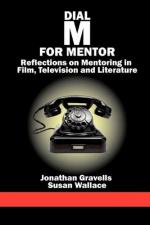|
This section contains 21,531 words (approx. 72 pages at 300 words per page) |

|
SOURCE: "E Unibus Pluram: Television and U.S. Fiction," in The Review of Contemporary Fiction, Vol. 13, No. 2, Summer, 1993, pp. 151-94.
In the following essay, Wallace offers extended discussion of the relationship between television and the development of image fiction in American literature during the 1990s.
Act Natural
Fiction writers as a species tend to be oglers. They tend to lurk and to stare. The minute fiction writers stop moving, they start lurking, and stare. They are born watchers. They are viewers. They are the ones on the subway about whose nonchalant stare there is something creepy, somehow. Almost predatory. This is because human situations are writers' food. Fiction writers watch other humans sort of the way gapers slow down for car wrecks: they covet a vision of themselves as witnesses.
But fiction writers as a species also tend to be terribly self-conscious. Even by U.S. standards. Devoting...
|
This section contains 21,531 words (approx. 72 pages at 300 words per page) |

|


